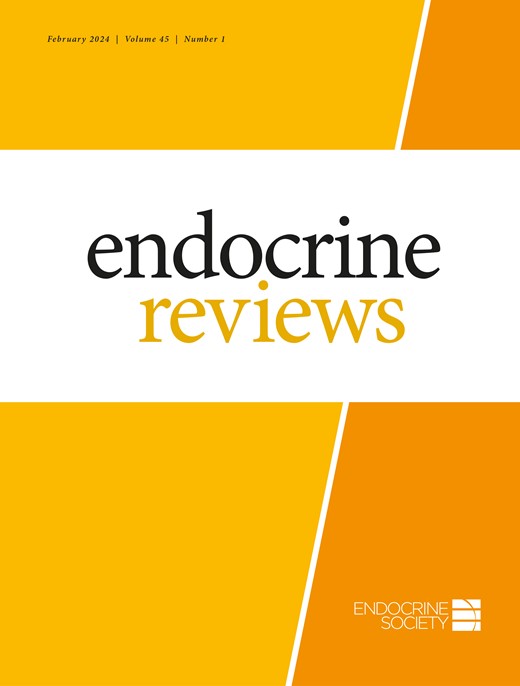自然杀伤细胞在乳腺癌病理生物学中的作用及雌激素对其的调节。
IF 22
1区 医学
Q1 ENDOCRINOLOGY & METABOLISM
引用次数: 0
摘要
乳腺癌仍然是全世界妇女中最常见的恶性肿瘤。虽然近年来乳腺癌的治疗效果有所改善,但对于最具侵袭性的乳腺癌亚型和已经转移的癌症的治疗方法的医疗需求仍未得到满足。近年来,基于t细胞的疗法和其他增强免疫细胞抗肿瘤活性的技术的成功,增加了使用自然杀伤(NK)细胞为基础的免疫疗法治疗实体肿瘤的兴趣。这些先天淋巴样细胞可以通过其固有的细胞毒性活性和通过细胞因子产生调节免疫反应的能力来识别和消除肿瘤细胞。由于缺乏t细胞受体,NK细胞也可以用于同种异体环境,目前正在探索开发和建立NK细胞作为乳腺癌治疗方法的策略。在这篇综述中,我们将描述NK细胞生物学与乳腺癌病理生物学和治疗结果的关系,并讨论NK细胞生物学如何在乳腺癌新疗法的开发中被利用和操纵。此外,我们回顾了雌激素在调节NK细胞活性中的作用,并讨论了针对雌激素受体信号轴的内分泌治疗如何作为一种提高肿瘤免疫力和NK细胞定向免疫治疗疗效的方法。本文章由计算机程序翻译,如有差异,请以英文原文为准。
The Roles of Natural Killer Cells in Breast Cancer Pathobiology and their Regulation by Estrogens.
Breast cancer remains the most commonly diagnosed malignancy among women worldwide. While breast cancer treatment outcomes have improved in recent years there remains an unmet medical need for therapeutics that can be used with curative intent in the most aggressive breast cancer subtypes and for those cancers that have metastasized. In recent years, the success of T-cell-based therapies and other technologies that boost anti-tumor activities of immune cells have increased interest in using natural killer (NK) cell-based immunotherapies to treat solid tumors. These innate lymphoid cells can identify and eliminate tumor cells through their intrinsic cytotoxic activities and their ability to modulate the immune response through cytokine production. Owing to their lack of T-cell receptors, NK cells can also be used in the allogeneic setting and strategies to develop and establish NK cells as therapeutics in breast cancer are currently being explored. In this review, we will describe NK cell biology as it relates to breast cancer pathobiology and treatment outcomes and discuss how NK cell biology can be exploited and manipulated in the development of new therapeutics for breast cancer. Additionally, we review the role of estrogens in regulating NK cell activity and discuss how endocrine therapies targeting the estrogen receptor signaling axis could be employed as an approach to increase tumor immunity and the efficacy of NK-cell-directed immunotherapies.
求助全文
通过发布文献求助,成功后即可免费获取论文全文。
去求助
来源期刊

Endocrine reviews
医学-内分泌学与代谢
CiteScore
42.00
自引率
1.00%
发文量
29
期刊介绍:
Endocrine Reviews, published bimonthly, features concise timely reviews updating key mechanistic and clinical concepts, alongside comprehensive, authoritative articles covering both experimental and clinical endocrinology themes. The journal considers topics informing clinical practice based on emerging and established evidence from clinical research. It also reviews advances in endocrine science stemming from studies in cell biology, immunology, pharmacology, genetics, molecular biology, neuroscience, reproductive medicine, and pediatric endocrinology.
 求助内容:
求助内容: 应助结果提醒方式:
应助结果提醒方式:


